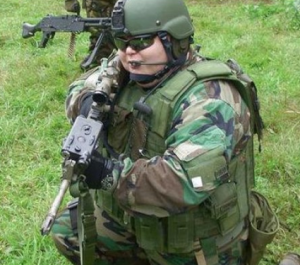Michael Spooner has worked in the animation industry for twenty-five years with such notable studios as Walt Disney, Warner Brothers and DreamWorks.
Michael’s professional career in art began in 1976, when he was invited to join the faculty at Art Center College of Design in Los Angeles, after graduating with distinction. He taught for twelve years, simultaneously working as a freelance illustrator for clients that included the Public Broadcasting System, Zondervan Publishing House, Masda Motors, the National Football League, NBC Television, Paramount Pictures and Twentieth Century Fox.
Michael ventured into animation as a Layout Artist with Ralph Bakshi’s feature production of Tolkien’s, Lord of the Rings. Shortly after he worked with Filmation Studios on He-Man, Bravestar and Fat Albert and on the Bagdasarian feature, The Chipmunk Adventure.
Joining the Walt Disney Television Animation team in 1988 as a Visual Development Artist and Production Designer, Michael set the style for such episodic shows as, Chip ‘n’ Dale’s Rescue Rangers, Talespin, Goof Troop, The Little Mermaid, New Bonkers and Aladdin. He also worked on the direct-to-video production of Aladdin and the King of Thieves.
In 1994, Michael and his family moved to Paris, France, where he headed up the Production Layout team for Disney’s feature film, A Goofy Movie.
Returning to Los Angeles in 1995, Michael Co-Art Directed Warner Brothers first full-length animated feature, Quest for Camelot. Following that he worked independently as a Visual Development Designer Consultant on Disney’s Dinosaurs, The Emperor’s New Groove, Treasure Planet and Lilo and Stitch. Michael also assisted on early development design of Dreamworks,’ Shrek.
Michael moved to the Chicago area in 1999 to become Vice President of Visual Development and Artist Education with Big Idea Productions, home of the popular 3D animated video series, Veggie Tales. There he developed and headed up the Visual Development process in Story, Concept Design, Modeling and Layout. He also served as Art Director on various productions and as an Art Direction Consultant on Big Idea’s first feature animated film, Jonah.
Today, Michael owns Spoonerville Animation Design, an independent visual development studio, providing both traditional and CGI design concepts for clients such as Big Idea, Inc., Star Farm Productions, ReelFX Creative Studios and Walt Disney Animation Studios.
He lives in the western suburbs of Chicago with his writer-wife Beverly, and son Philip.
Michael is a visiting artist and lecturer, presenting in universities, art schools and animation studios throughout the United States.
You may reach him at: spoonerville1@sbcglobal.net or 630 301-0895


